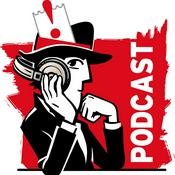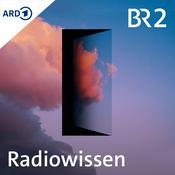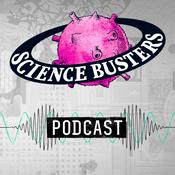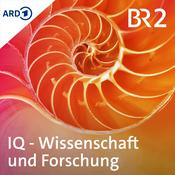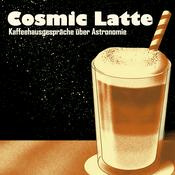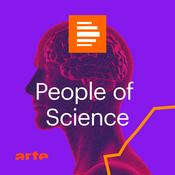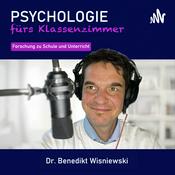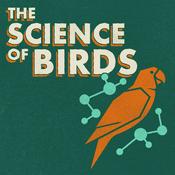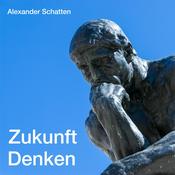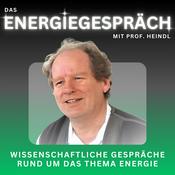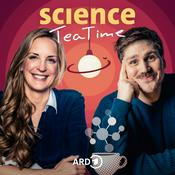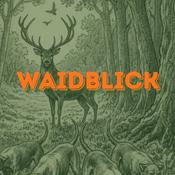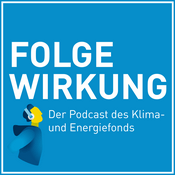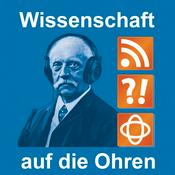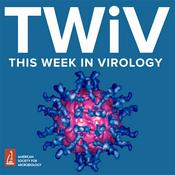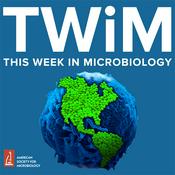67 Episoden
- TWiN explores the use of speech brain-computer interfaces to restore communication to people with paralysis, and reveals strategies for protecting private inner speech.
Hosts: Vincent Racaniello, Vivianne Morrison, and Tim Cheung
Subscribe (free): Apple Podcasts, Google Podcasts, RSS
Links for this episode
MicrobeTV Discord Server
Keeping private inner speech from brain-computer interfaces (Cell)
Mind-reading brain implant with password protection (Nature)
Timestamps by Jolene Ramsey. Thanks!
Music is by Ronald Jenkees
Send your neuroscience questions and comments to [email protected] - TWiN explores how theta phase shifts mediate contextual perception of facial expressions during everyday social interactions.
Hosts: Vincent Racaniello, Vivianne Morrison, and Tim Cheung
Subscribe (free): Apple Podcasts, Google Podcasts, RSS
Links for this episode
MicrobeTV Discord Server
Neural computations underlying contextual processing in humans (Cell Rep)
Previous experience shapes perception (Front Human Neurosci)
Timestamps by Jolene Ramsey. Thanks!
Music is by Ronald Jenkees
Send your neuroscience questions and comments to [email protected] - TWiN reviews the underlying neurobiological mechanisms of overeating and obesity, the role of the hypothalamus and reward systems in controlling food intake and energy balance, and how dysregulation in these systems leads to overeating.
Hosts: Vincent Racaniello, Vivianne Morrison, and Tim Cheung
Subscribe (free): Apple Podcasts, Google Podcasts, RSS
Links for this episode
MicrobeTV Discord Server
Neurobiology of overeating (Neuron)
Timestamps by Jolene Ramsey. Thanks!
Music is by Ronald Jenkees
Send your neuroscience questions and comments to [email protected] - TWiN explains epidemiological data showing that exposure to air pollution was associated with an increased risk of developing Lewy body dementia, and nasal administration of air pollution in mice led to brain atrophy and impaired cognition and motor function.
Hosts: Vincent Racaniello, Vivianne Morrison, and Tim Cheung
Subscribe (free): Apple Podcasts, Google Podcasts, RSS
Links for this episode
MicrobeTV Discord Server
Links between air pollution and dementias (Science)
Letter from Susan Schneider Williams Widow of Robin Williams (Lewy Body Dementia UK)
Awakenings (Wikipedia)
Timestamps by Jolene Ramsey. Thanks!
Music is by Ronald Jenkees
Send your neuroscience questions and comments to [email protected] - TWiN explains how visual neurons show functional flexibility by selectively responding to subsets of inputs representing attended objects while ignoring those conveying information about irrelevant objects.
Hosts: Vincent Racaniello, Vivianne Morrison, and Tim Cheung
Subscribe (free): Apple Podcasts, Google Podcasts, RSS
Links for this episode
MicrobeTV Discord Server
Gamma-band synchronization in visual cortex (Nat Comm)
Timestamps by Jolene Ramsey. Thanks!
Music is by Ronald Jenkees
Send your neuroscience questions and comments to [email protected]
Weitere Wissenschaft Podcasts
Trending Wissenschaft Podcasts
Über This Week in Neuroscience
A podcast about the nervous system.
Podcast-WebsiteHöre This Week in Neuroscience, Quarks Daily und viele andere Podcasts aus aller Welt mit der radio.at-App
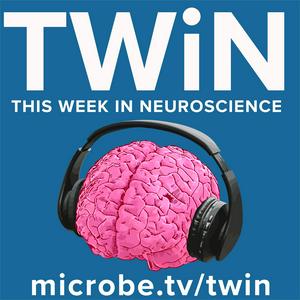
Hol dir die kostenlose radio.at App
- Sender und Podcasts favorisieren
- Streamen via Wifi oder Bluetooth
- Unterstützt Carplay & Android Auto
- viele weitere App Funktionen
Hol dir die kostenlose radio.at App
- Sender und Podcasts favorisieren
- Streamen via Wifi oder Bluetooth
- Unterstützt Carplay & Android Auto
- viele weitere App Funktionen


This Week in Neuroscience
Code scannen,
App laden,
loshören.
App laden,
loshören.



